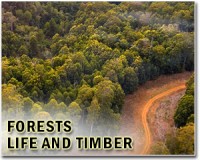 |
Miami (AFP) March 11, 2011 US scientists in the Florida Everglades are recruiting crocodiles and alligators in their fight to preserve the fragile wetlands by implanting satellite chips in their necks for the first time. As the animals make their way through different parts of the sprawling national park they beam back information on changes in the ecosystem and its impact on their size and movement patterns. "They are giving us important data... They are working for us," says Frank Mazzotti, an ecologist and expert in the large reptiles at the University of Florida. The information is transferred by satellite to a computer application that uses Google maps to track the movements of the animals, who are captured and released in groups of around 15 at a time. "Scientists use different parameters to track responses of alligators and crocodiles to changes in the ecosystem, including their number, their weight, their size and their places of habitat," Mazzotti said. "All this information provides important data that is instrumental in analyzing the health of the Everglades' ecosystem" and in seeing whether past conservation efforts have succeeded. Conservationists estimate there are between 500 and 1,200 crocodiles -- distinguished from alligators by their narrower snouts and exposed teeth -- in southern Florida. The animals, which can grow to be 15 feet (4.5 meters) long and weigh up to 450 pounds (200 kilograms), have declined in number over recent years because of loss of habitat, illegal poaching and water pollution. Like the many bird species that inhabit the Everglades, the fate of alligators and crocodiles is closely tied to water levels, which largely determine their food supply, Mazzotti said. Falling water levels results in fewer plants, needed for nesting and shelter, as well as fewer fish to support the larger animals such as birds and reptiles. An estimated 30,000 to 50,000 birds nest in the Everglades every year, a drastic reduction from the 1940s, when as many as 500,000 lived there, said Jerry Lorenz, of the Audobon of Florida, a conservation group. "In more than half a century, it's been about a 90 percent decline on average," he said. A succession of floods, hurricanes, fires and drought has produced a unique ecosystem in the Everglades with a wealth of rare plants and animals, including the crocodiles, manatees, flying squirrels and gray foxes that climb trees. Conservationists fear that budget cuts could complicate efforts to conserve the wetlands, with a million visitors every year attracted to the Everglades National Park, a subtropical wilderness. The popular French clothing brand Lacoste, which funds a global program to protect crocodiles called "Saving the Logo" after its own trademark, is contributing to the efforts to conserve crocodiles and alligators in the Everglades. The company, founded by French tennis champion Rene Lacoste, is putting up some $150,000 over the next three years to help save crocodiles around the world. "We are very pleased to participate in this new project that clearly emphasizes the importance and the key role of crocodiles and alligators in the ecosystem," said chief executive Christophe Chenut.
Share This Article With Planet Earth
Related Links Forestry News - Global and Local News, Science and Application
 Trading places: Kenyans swap carbon roles to save forest
Trading places: Kenyans swap carbon roles to save forestMaungu, Kenya (AFP) March 8, 2011 Mwakitau Kaleghe used to scratch out a living from burning charcoal, culled from trees whose felling helped turn a rich tropical woodland in southern Kenya into a desolate mosaic. Today, though, sees Kaleghe, 65, enlisted in an environmental war, as a captor of carbon rather than an emitter of it and as a custodian of Rukinga forest rather than an agent in its destruction. Kaleghe nurtur ... read more |
|
| The content herein, unless otherwise known to be public domain, are Copyright 1995-2010 - SpaceDaily. AFP and UPI Wire Stories are copyright Agence France-Presse and United Press International. ESA Portal Reports are copyright European Space Agency. All NASA sourced material is public domain. Additional copyrights may apply in whole or part to other bona fide parties. Advertising does not imply endorsement,agreement or approval of any opinions, statements or information provided by SpaceDaily on any Web page published or hosted by SpaceDaily. Privacy Statement |